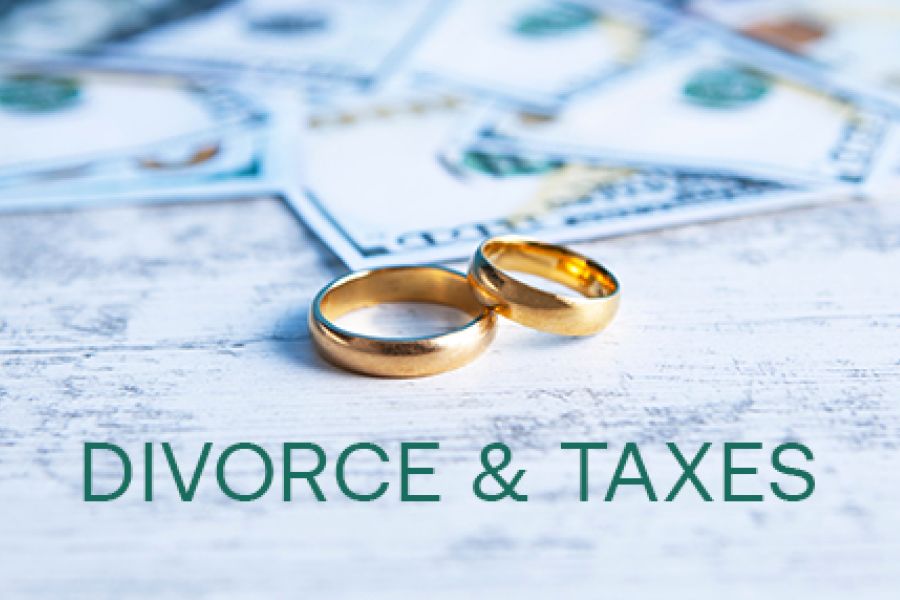Most businesses have websites today. Despite their widespread use, the IRS hasn’t issued formal guidance on when website costs can be deducted. But there are established rules that generally apply to the deductibility of business expenses and provide business taxpayers launching a website with some guidance about proper treatment. In addition, businesses can turn to IRS guidance on software costs. Here are some answers to questions you may have. What are the tax differences between hardware and software? Let’s start with the hardware you may need to operate a website. The costs fall under the standard rules for depreciable equipment. Specifically, for 2024, once these assets are operating, you can deduct 60% of the cost in the first year they’re placed in service. This favorable treatment is allowed...

Regardless of their size, businesses rely heavily on technology. Although your network and computer-related tools are essential to function, they’re also a potential liability because they can offer cybercriminals access to your company. To protect against this complex and ever-evolving threat, businesses must deploy a comprehensive cybersecurity program. Your arsenal You should already have a cybersecurity software package to protect technology assets. But to provide the best protection from hackers and other fraud perpetrators, arm your business with these seven additional weapons: 1. Strong passwords. Given a choice, most computer users select passwords that are easy to remember and input. But cybercriminals use password-cracking software that can guess simple passwords in almost no time. So require all employees to choose complex passwords that combine upper- and lowercase letters, numbers...
Savings bonds are purchased by many Americans, often as a way to help fund college or show their patriotism. Series EE bonds, which replaced Series E bonds, were first issued in 1980. From 2001 to 2011, they were designated as “Patriot Bonds” as a way for Americans “to express support for our nation’s anti-terrorism efforts,” according to the U.S. Treasury Department. Perhaps you purchased some Series EE bonds many years ago and put them in a file cabinet or safe deposit box. Or maybe you bought them electronically and don’t think about them often. You may wonder: How is the interest you earn on EE bonds taxed? And if they reach final maturity, what steps do you need to take to ensure there’s no loss of...
While many facets of the economy have improved this year, the rising cost of living and other economic factors have caused many businesses to close their doors. If this is your situation, we can help you, including taking care of various tax responsibilities. To start with, a business must file a final federal income tax return and some other related forms for the year it closes its doors. The type of return that must be filed depends on the type of business you have. For example: Sole Proprietors will need to file the usual Schedule C, “Profit or Loss from Business,” with their individual returns for the year they close their businesses. They may also need to report self-employment tax. Partnerships must file Form 1065, “U.S. Return...
When a marital estate includes an interest in a closely held business, determining its value for purposes of dividing up assets for a divorce settlement can be challenging. Additionally, part or all of the business may be excluded from the marital estate, depending on state law, legal precedent and prenuptial agreements between the spouses. A business valuation professional can help the parties achieve a fair outcome. 2 components of value The value of a business can be broken down into two pieces. First up are tangible (or hard) assets. Examples include such items as cash, receivables and equipment. Most of these items are recorded on a company’s balance sheet. The difference between the combined market values of tangible assets and liabilities (such as payables and bank debt)...
Divorce entails difficult personal issues, and taxes are probably the farthest thing from your mind. However, several tax concerns may need to be addressed to ensure that taxes are kept to a minimum and that important tax-related decisions are properly made. Here are six issues to be aware of if you’re in the process of getting a divorce. 1. Personal residence sale In general, if a couple sells their home in connection with a divorce or legal separation, they should be able to avoid tax on up to $500,000 of gain (as long as they’ve owned and used the home as their principal residence for two of the previous five years). If one former spouse continues to live in the home and the other moves out (but...
Social media gets blamed for a lot these days — sometimes for good reason. Recently, the IRS issued a warning to individual and business taxpayers to beware of false claims about various federal tax breaks that appear on social media platforms. The common denominator of such claims is that they involve legitimate tax provisions for which most taxpayers don’t qualify. If you claim these breaks erroneously, it could delay a refund, require time-wasting correspondence and paperwork, and even result in penalties and criminal prosecution. Abusing legitimate tax breaks Intentionally fraudulent or even honestly inaccurate tax advice can come from many sources. These days, a lot of people put faith in social media “influencers,” who may not be qualified to dispense financial advice. According to the IRS, thousands...
(As appearing in IR 2024-186) IRS reminds car dealers and sellers to be aware of phishing scams In light of the CDK ransomware attack, the Internal Revenue Service would like to remind car dealers and sellers to be aware of evolving phishing and smishing scams that could impact day-to-day operations of the business. In light of the recent ransomware attack against CDK, the IRS is warning individuals and businesses to remain vigilant against these attacks. Fraudsters and identity thieves attempt to trick the recipient into clicking a suspicious link, filling out personal and financial information or downloading a malware file onto their computer. Scammers are relentless in their attempts to obtain sensitive financial and personal information, and impersonating the IRS remains a favorite tactic. The IRS urges car dealerships...
Are you buying a business that will have one or more co-owners? Or do you already own one fitting that description? If so, consider installing a buy-sell agreement. A well-drafted agreement can do these valuable things: Transform your business ownership interest into a more liquid asset, Prevent unwanted ownership changes, and Avoid hassles with the IRS. Agreement basics There are two basic types of buy-sell agreements: Cross-purchase agreements and redemption agreements (sometimes called liquidation agreements). A cross-purchase agreement is a contract between you and the other co-owners. Under the agreement, a withdrawing co-owner’s ownership interest must be purchased by the remaining co-owners if a triggering event, such as a death or disability, occurs. A redemption agreement is a contract between the business entity and its co-owners (including you). Under...
The current estate tax exemption amount ($13.61 million in 2024) has led many people to feel they no longer need to be concerned about federal estate tax. Before 2011, a much smaller exemption resulted in many people with more modest estates attempting to avoid it. But since many estates won’t currently be subject to estate tax, it’s a good time to devote more planning to income tax saving for your heirs. Important: Keep in mind that the federal estate tax exclusion amount is scheduled to sunset at the end of 2025. Beginning on January 1, 2026, the amount is due to be reduced to $5 million, adjusted for inflation. Of course, Congress could act to extend the higher amount or institute a new amount. Here are some strategies...
- 1
- 2
- 3
- 4
- 5
- 6
- 7
- 8
- 9
- 10
- 11
- 12
- 13
- 14
- 15
- 16
- 17
- 18
- 19
- 20
- 21
- 22
- 23
- 24
- 25
- 26
- 27
- 28
- 29
- 30
- 31
- 32
- 33
- 34
- 35
- 36
- 37
- 38
- 39
- 40
- 41
- 42
- 43
- 44
- 45
- 46
- 47
- 48
- 49
- 50
- 51
- 52
- 53
- 54
- 55
- 56
- 57
- 58
- 59
- 60
- 61
- 62
- 63
- 64
- 65
- 66
- 67
- 68
- 69
- 70
- 71
- 72
- 73
- 74
- 75
- 76
- 77
- 78
- 79
- 80
- 81
- 82
- 83
- 84
- 85
- 86
- 87
- 88
- 89
- 90
- 91
- 92
- 93
- 94
- 95
- 96
- 97
- 98
- 99
- 100
- 101
- 102
- 103
- 104
- 105
- 106
- 107
- 108
- 109
- 110
- 111
- 112
- 113
- 114
- 115
- 116
- 117
- 118
- 119
- 120
- 121
- 122
- 123
- 124
- 125
- 126
- 127
- 128
- 129
- 130
- 131
- 132
- 133
- 134
- 135
- 136
- 137
- 138
- 139
- 140
- 141
- 142
- 143
- 144
- 145
- 146
- 147
- 148
- 149
- 150
- 151











